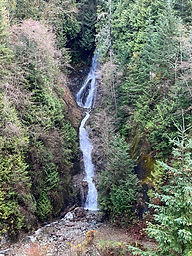Settler Education 101
- kc dyer
- Mar 15, 2023
- 2 min read
Updated: Jul 1, 2023
Let's Talk About Land Acknowledgements

Recently Lions Bay Council has been struggling to implement a First Nations land acknowledgement statement to open council meetings, something that has become a fairly regular practice in schools, governments and other organizations across the country.
Territorial or land acknowledgements often take the form of a sentence or two at the beginning of a meeting, recognizing the original Indigenous 'stewards of the land, and sometimes with the stated goal of reconciliation between Indigenous people and settler races at the core of the message.
However, well-intentioned, such a statement on its own can be seen as merely a performative action, a rote message that claims to show respect while really being empty of any meaningful action.
Chelsea Vowel is a Metis writer and Cree language instructor at the University of Alberta. Way back in 2016, she addressed the issue of territorial acknowledgements HERE on her blog âpihtawikosisân, (the Cree word for the Metis people, translating to 'half-son').
Vowel offers an excellent analysis and a thoughtful look at the purpose, policy and practices of land acknowledgements, and beyond. Among her conclusions is that the last thing territorial acknowledgements should be is comfortable, either for the giver or the listener. They should be seen as an act of disruption, and a recognition of the erasure of the Indigenous people and their stewardship of the land. She believes the statements should instead be springboards to action. "Moving beyond these acknowledgements means asking hard questions," she says. " It requires that we remain uncomfortable, and it means making concrete, disruptive change."
If the land acknowledgement is to be meaningful, it follows that subsequent steps in seeking these changes should also be articulated and explored. What can happen next? Can the organization offering the acknowledgement then reach out to the local Indigenous Nation to improve communication? Can they offer financial support? Can they work to further their own education and the education of their members?
Today, in the spirit of full disclosure, The Watershed takes a look at our own policy. Since our inception, The Watershed has offered an acknowledgement in each monthly issue, as follows:
The publisher of The Watershed is grateful to produce this work in
Ch'ich'iyúy Elxwíkn (Lions Bay), on the traditional and unceded territories of the Skwxwú7mesh uxwúmixw (Squamish Nation).
Follow this link if you'd like to learn how to pronounce the name of our village -- which translates to Twin Sisters-- in the Squamish language.
In an effort to ensure our acknowledgements are not just performative, The Watershed is a supporter of RAVEN, a registered charity with a mission to raise funds for Indigenous People's access to justice. And we further seek to disrupt the status quo with our monthly Settler's Ed 101 columns like this one, asking questions and sharing information with our readers.
To learn more about territorial acknowledgements, here is a small list of resources, a mere starting point in what is a very large and complex issue.
Do you have suggestions for further resources? The Watershed welcomes your input! Please feel free add your comments below, or send them to editor@lionsbaywatershed.ca





Comments